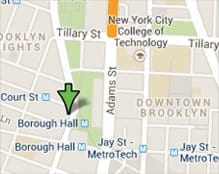What is conspiracy?
Essentially, a conspiracy consists of two different aspects: a plan among two or more people to commit an unlawful act and an action taken toward the completion of that act. According to FindLaw, if you involve yourself in a conspiracy to commit a crime in New York, and you and your co-conspirators successfully complete the crime, you may not only face charges for the crime itself but for the conspiracy as well. Even if you and your alleged co-conspirators did not complete the crime, you may still face conviction on conspiracy charges. Therefore, involvement in a conspiracy can carry some pretty serious legal consequences.
Merely having knowledge of a crime does not automatically involve you in a conspiracy, however. For authorities to charge you with a conspiracy, you must actively take part in the planning of a crime or offer some kind of assistance to those making the plans.
In order to convict you for conspiracy, the prosecution must show that you intended to aid in the commission of a crime. Not only that, but the prosecution must also show that all parties to the conspiracy intended to achieve the same illegal outcome.
To secure a conspiracy conviction, the prosecution also must prove there was an agreement between two or more conspirators. Here it becomes a little complicated; while the mere association with one or more conspirators doesn’t automatically make you a co-conspirator with them, agreement to enter into a conspiracy does not necessarily need to be explicit either. Any actions that you take to aid the conspiracy may indicate your agreement, which may also be implicit.
The information in this article is not intended as legal advice but provided for educational purposes only.
Office Location
Neil S. Ruskin
188 Montague Street Suite 900
Brooklyn, NY 11201
Local: (718) 237-1547
Fax: 718-875-4011












